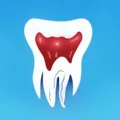Age is Just a Number When it Comes to a Beautiful Smile
No matter your age, it’s never too late to straighten your teeth. With modern orthodontics, people of all ages can achieve the smile they’ve always dreamed of. Whether you’re 16 or 60, braces and aligners can help transform your smile.
It’s Never Too Late
Today’s braces are more comfortable, effective, and discreet than ever. Clear aligners like Invisalign use a series of transparent trays to gradually shift your teeth. Damon braces use high-tech archwires for faster, gentler alignment. And lingual braces attach to the back of your teeth where no one can see them.
The Benefits are More than Cosmetic
A straighter smile does more than boost your confidence, it also improves oral health. Correctly aligned teeth are easier to brush and floss, reducing your risk of decay and gum disease. They also distribute chewing forces more evenly, preventing abnormal wear.
Investing in Your Smile and Wellbeing
When you feel good about your smile, you tend to smile bigger and more often. This makes you appear more youthful, friendly, and approachable. It also has mood boosting benefits, releasing feel-good endorphins that lift your spirit.
FAQ
What are the different types of braces?
Common types of braces include metal braces, ceramic braces, lingual braces, Invisalign clear aligners, and Damon braces. Your orthodontist will recommend the best option for your unique smile goals.
Am I too old for braces?
You’re never too old for braces! Nowadays, plenty of adults get braces to correct longstanding issues or imperfections with their smile. While results may take longer compared to a growing teen, adults of any age can benefit from straighter teeth.
How long will I need to wear braces?
The length of orthodontic treatment varies for each patient. Most people wear braces between 1-3 years. Factors like the type of braces, the changes needed, and how diligent you are with orthodontic instructions impact overall timeframe.
Can I still eat my favorite foods with braces?
You’ll need to take care when eating hard, sticky, and chewy foods to avoid damage. But you can absolutely still enjoy most of your favorites in moderation. Your orthodontist will advise which foods to avoid and proper precautions to take.
Do braces hurt?
It’s common to feel mild soreness and pressure on your teeth when braces are first put on or adjusted. This discomfort is temporary and manageable with over-the-counter pain medication. Modern braces are designed to move teeth gently, without excessive pain.









